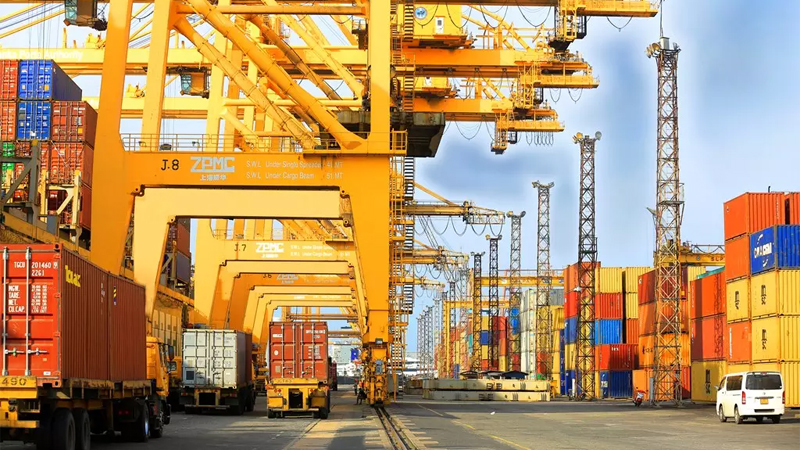- Sri Lanka could lose a US$ 3.3 billion export market
- Could significantly impact the economy leading to export decline and job losses
- Apparel industry to take the worst hit
Exporters said that if a favourable outcome to the US tariff issue doesn’t emerge by this week the export sector will suffer an unprecedented setback severely diminishing foreign reserves to the country.
Secretary General/Chief Executive Officer-National Chamber of Commerce of Sri Lanka, M. Shiham Marikar said as the apex body representing the country’s exporters, the National Chamber of Exporters is closely monitoring developments related to U.S. tariff policies.
“The NCE hopes for a fair and predictable tariff regime that supports long-term trade stability and growth. We strongly advocate for open, rules-based international trade and urge policymakers in the U.S. to maintain or expand preferential access for developing economies like Sri Lanka, especially under programs such as the GSP (Generalized System of Preferences), which has historically supported our SMEs and job creation.
“While we understand that U.S. trade policy is shaped by a wide range of geopolitical and economic considerations, we remain optimistic that future tariff outcomes will be supportive of mutual economic cooperation.
The NCE is also engaging with relevant government and diplomatic channels to ensure that the voice of our exporters is heard, and that we are well-positioned to respond to any changes swiftly and effectively,” he said.
The United States remains a key export destination for several sectors in Sri Lanka, particularly apparel, rubber-based products, IT services, and agricultural produce.
Well-known corporate personality Ramal Jasinghe said that during his tenure as the National Chamber of Exporters President the GSP with the USA under the first Trump administration was under review, and the US Government viewed the terms favorably then. This was a result of active negotiation from all concerned fronts with the US at the time.
Initial efforts to address the US tariff issue was taken up by the present Government, some say it was preemptive action, as the Sri Lankan trade delegations was the first to have commenced negotiations with the US trade arms on the issue. This was a very proactive initiative which had traction initially with a cooling off period granted to countries such as ours.
Moving on continued engagement with the US government must be carried out unabatedly with a total effort by all the trade chambers in the Country supporting the state’s negotiations to ease the pressure it faces by the tariffs as the US is Sri Lanka’s biggest export destination.
The time for a final deal with the US on tariffs expires on July 9, a D-day for all exporters across the world who have not reached a deal with the US.
The US market accounts for over 40% of Sri Lanka’s apparel exports and a large volume of rubber besides other export items bringing in around US$ 3.3 billion in income annually.
However, Cabinet spokesman and Minister Dr. Nalinda Jayatissa yesterday told the media that there will be a favourale solution and urged the exporters to have confidence that they could expect a good response from the US on the looming reciprocal tariffs by 8 July, easing concerns of a severe blow to local exporters.
He acknowledged that the sweeping tariff measures announced by US President Donald Trump on April 2, 2025 sent shockwaves throughout the global market.
“We hope that by July 8, the US will be able to adjust its tariff policies in a way that does not harm our exporters or severely impact our economy,” he added.
The Opposition in Parliament has been insisting that a proper plan should have been in place from the outset to face such an eventuality and that the government will be accountable for the failure to reach a deal with the US on tariffs.
Opposition MP Dr. Harsha De Silva came down hard on the Government that it had failed in its duties to strike a deal with the US.
Trade experts said the President should have accompanied the delegation to the US for talks in Washington and struck a deal as India and Vietnam have done.
However, Sri Lanka expects a baseline 10% tax on all imports, with significantly higher rates on countries with which the US maintains trade deficits. Sri Lanka, in particular, faces one of the steepest rates at 44%.







